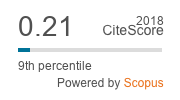Fracasso escolar e desamparo adquirido
Resumen
RESUMO - Esta pesquisa teve por objetivo principal verificar as possíveis relações entre fracasso escolar, desamparo adquirido e depressão em crianças de nível sócio-econômico baixo. A presença de desamparo foi verificada através do padrão atribuicional de causas para o fracasso. As atribuições foram categorizadas em três dimensões causais: quanto ao locus de controle (interna/externa), à constância (estável/instável) e à generalidade (global ou especifica). O desamparo foi definido como uma atribuição interna, estável e global para o fracasso. As atribuições de causa foram feitas pelas crianças em entrevistas semi-dirigidas, dentro de um esquema de questões abertas. Para detectar a presença de traços depressivos, foi utilizado o Teste de Apercepção Temática (TAT). A amostra foi composta por 60 alunos das 2a e 3a séries do 1° grau, com idade variando entre 8 e 12 anos. Os sujeitos foram classificados em dois grupos de comparação: DS, desempenho acadêmico satisfatório (alunos com promoções sucessivas no sistema escolar) e Dl, desempenho acadêmico insatisfatório (alunos com duas ou mais reprovações no sistema). Os resultados revelaram alta associação entre fracassos escolar e desamparo adquirido. A associação entre estas duas variáveis e traços depressivos também foi significativa, porém em menor grau. A análise qualitativa dos resultados mostrou, sobretudo, que existe uma relação altamente significativa entre fracasso escolar e o sentimento da criança de impotência frente aos eventos externos a ela relacionados.
Descargas
Citas
humans: critique and reformulation. Journal of Abnormal Psychology, 87, 49-74.
Alencar E. L., & Araújo, M. L. M. (1983). Problemas de comportamento e rendimento
acadêmico entre alunos do 1° grau. Tecnologia Educacional, 12, 51-56.
Alloy, L. В., Peterson, С, Abramson, L. Y., & Seligman, M. S. (1984). Attribution^
style and the generality of learned helplessness. Journal of Personality and Social
Psychology, 46, 681-687.
Aulagnier, P. (1979). A violência da interpretação. Rio de Janeiro: Imago.
Cunha, L. A. (1977). Educação e desenvolvimento social no Brasil. Rio de Janeiro:
Francisco Alves.
Danker-Brown, P., & Baucom, D. N. (1982). Cognitives influences in the development
of learned helplessness. Journal of Personality and Social Psychology, 43,
793-801.
Diener, C. I., & Dweck, C. S. (1980). An analysis of learned helplessness: the
processing of success. Journal of Personality and Social Psychology, 39,
940-952.
Dolto, F. (1985). Seminário de psicanálise de crianças. Rio de Janeiro: Zahar.
Gabber, J., & Seligman, M. S. (1980). Human helplessness: Theory and applications.
New York: Academic Press.
Gouveia, A. J. (1983). A escola, objeto de controvérsia. Em M. H. S. Patto (Org.).
Introdução à psicologia escolar. São Paulo: Queiroz.
Klein, M. (1969). Psicanálise da criança. São Paulo: Mestre Jou.
Krantz, S. E., & Rude, S. (1984). Depressive attributions: Selection of different causes
or assigment of dimensional meanings? Journal of Personality and Social
Psychology, 47, 193-203.
Leclaire, S. (1977). Mata-se uma criança. Rio de Janeiro: Zahar.
Norman, W. H., & Miller, I. W. (1979). Learned helplessness in humans: A rewiew and
attribution-theory model. Psichological Bulletin, 86, 93-118.
Patto, M. H. S. (1983). Da psicologia do desprivilegiado à psicologia do oprimido. Em
M. H. S. Patto (Org.). Introdução à psicologia escolar. São Paulo: Queiroz.
Seligman, M. (1975). Helplessness. San Francisco: W. H. Freeman.
Seligman, M. (1979). Depressive attribution style. Journal of Abnormal Psychology,
88, 242-270.
Shepard, S. R. (1983). Um estudo exploratório sobre depressão e desamparo adquirido
em estudantes universitários. Tese de doutorado. São Paulo: Pontifícia Universidade
Católica de São Paulo.
Soares, M. B. (1983). Avaliação educacional e clientela escolar. Em M. H. S. Patto
(Org.). Introdução à psicologia escolar. São Paulo: Queiroz.
Taliuli, N. (1980). Atribuição de causalidade em tarefas acadêmicas por alunos de nível
sócio-econômico baixo e desempenho diferente. Dissertação de mestrado.
Vitória: Universidade Federal do Espfrito Santo.
Viesse, V. R. (1976). Utilização de eventos reforçadores específicos em crianças
marginalizadas culturalmente com auto-estima baixa. Dissertação de mestrado.
Porto Alegre: Universidade Federal do Rio Grande do Sul.
Weiner, B. (1983). Some methodological pitfalls in attributional research. Journal of
Educational Psychology, 75(4), 530-543.
Weiner, B. (1984). Principles for a theory of student motivation and their application
within an attributional framework. Em R. Ames & С Ames (Orgs.). Research on
motivation in education. (Vol. 1). Flórida: Academic Press.
Zuroff, D. C. (1980). Learned helplessness in humans: an analysis of learning
processes and the roles of individual and situational differences. Journal of
Personality and Social Psychology, 39, 130-146.



